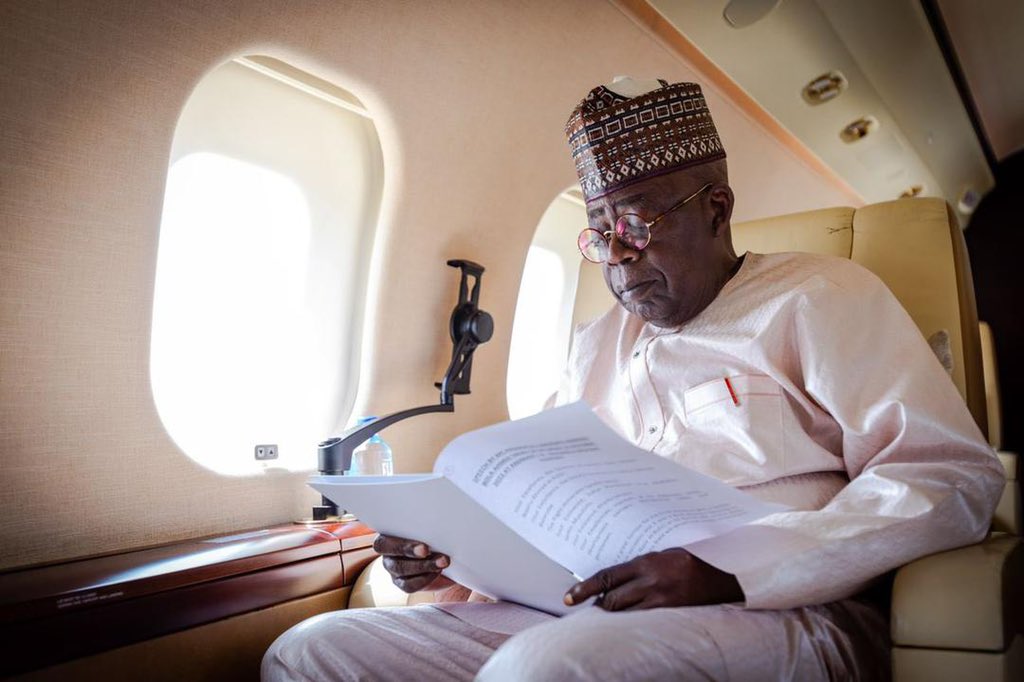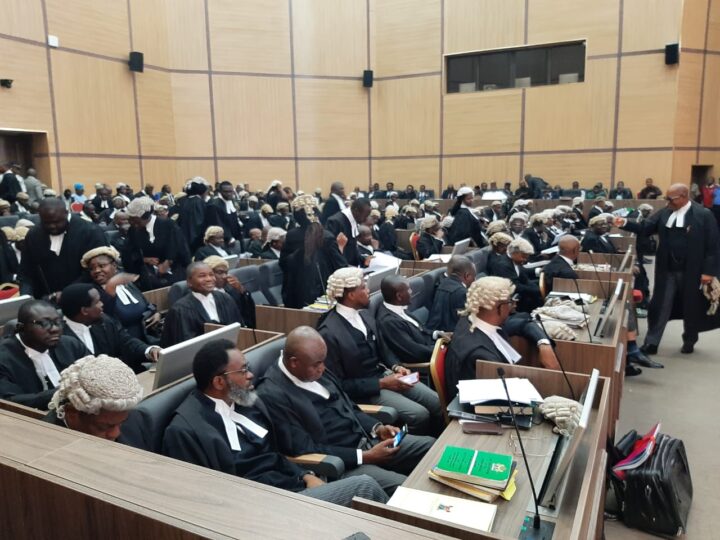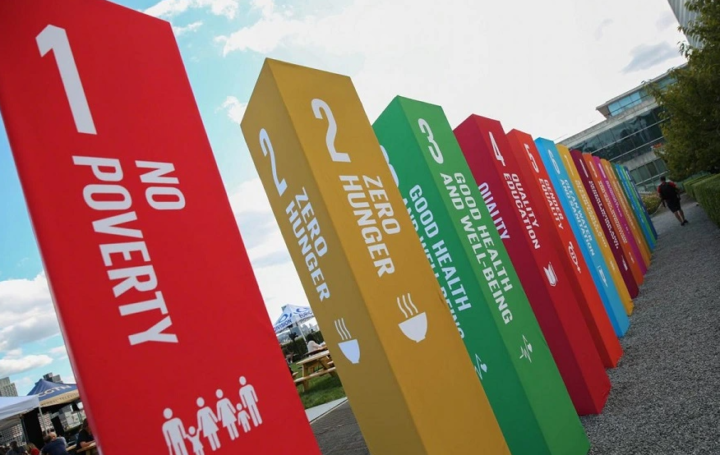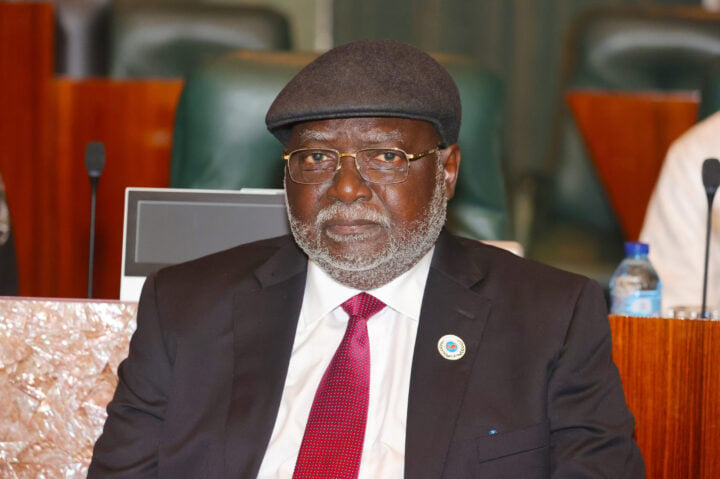The 2023 general election might have come and gone, safe for those which have been declared inconclusive by the Independent National Electoral Commission (INEC), and some that are being challenged at the tribunal, for one reason or the other.
Having said that, barring any unforeseen circumstance, on May 29, 2023, President Muhammadu Buhari will have completed his second term in office, after which he will no longer be eligible to run, at least for the presidency. He will, therefore, be handing over to the president-elect, Asiwaju Bola Ahmed Tinubu, to continue as the 16th president of the Federal Republic of Nigeria.
Buhari, having been in power as a military head of state, between January 1, 1984, and August 26, 1985, started running for the presidency under a democratic dispensation in 2003. He would continue to run, every election cycle – 2007, 2011, and 2015, when he finally won. I won’t bore you with what he did that made him win on the fourth time of asking. Google to the rescue for those who were either too young or too aloof from contemporary politics in 2013/14 and eventually in 2015 to understand what was going on.
So, having been in the race for 12 “solid” years, one would be pardoned for presuming that, he would hit the ground running, as soon as he was sworn in. Immediately after he assumed office, we started seeing signs of improvement in some critical decors. Electricity supply, for instance, in my neighbourhood – Lagos Mainland then became uninterrupted for about two weeks. Some people called it “the effect of Buhari’s Body Language”. But within a month or so, the whole body language myth was demystified, and it became business as usual. To the chagrin of those of us who were guilty of that naive mindset, it took President Buhari, six long “national months” to form his cabinet. He was running the country from the pockets of his “Babariga”, safe for the pockets of SAs and SSAs he’d appointed before and, shortly after, the inauguration of his administration. No minister, no heads of parastatals. We all felt the wait would be worth the while by the time the president unveiled the crack team Nigerians expected him to package and run the government with. When the list eventually came out, we discovered, it contained all his known political associates, most of whom were known faces around him and in political space since the beginning of the 4th republic. They were those who packaged him for “sale” to the distraught Nigerians who were fed up with the government of Dr Goodluck Jonathan. Most of them, safe for about two of them, were non-performers.
Advertisement
No sooner did Buhari come into office than it became glaringly clear that he was least prepared for governance. Appointments into the boards of some key parastatals were delayed for years, while nothing happened in those establishments. The list of ambassadorial nominees lingered for so long that before it was announced, one of them had died, yet, they went ahead to announce the deceased’s name before his demise became known to them. Some matters of urgent national importance requiring sharp democratic reflexes were, at best, dealt with at a snail’s speed. In the process, the concomitant collateral damages, especially on the economy, became much worse than they could ordinarily have been, were they addressed with the required urgency.
With this experience, still fresh in my memory, I have refused to remain stuck in the murky water or politics that would want to make one not move ahead, away from the February 25 presidential election that still remains a subject of controversies and even, litigation. Having voted on February 25, and March 18, 2023, as either, “Batists”, “Atikulators”, or “Obidients”, it is time to live as Nigerians. It is time to pursue our common national destiny, with a very high spirit of nationalism.
Please do not get me wrong. I am neither endorsing, nor condemning, the election. I have been following the current crop of Nigerian politicians long enough to know how they rate an election. It is free, fair, and credible when they or their preferred candidates are declared winners, while it becomes a sort of crime against humanity if they or their preferred candidates are defeated. That’s how we roll here. The 2023 general election is no different. To those who won, or whose preferred candidates won, the election is the best to have happened to “democracy” and Nigeria after the discovery of “Fufu and Oha soup”. Based on the above-cited experience, I spent time dwelling on the shenanigans that are bound to trail the outcome of the election. I strongly believe that nothing much will be changed by the 2023 general election petition tribunal. It is on that note that I have decided not to waste my time dwelling on electoral offences that you and I know were committed by, or on behalf of each of the candidates in their respective areas of stronghold.
Advertisement
Coming to the crux of today’s piece. Now that the Independent National Electoral Commission (INEC) has declared the candidate of the All Progressives Congress (APC) and former governor of Lagos state, Asiwaju Bola Ahmed Tinubu, the winner of the election, I am focusing on the task of rebuilding Nigeria from the current state of ruin, and “how prepared” the man appears to be, for the job he has been busy, auditioning for, over the past couple of decades?
Some keen watchers of the former Treasurer of Mobil Nigeria, who had been strategising, and building bridges across ethnoreligious divides, for the past three decades or so, would tell you, he dares not repeat the Buhari episode of ill-preparedness of 2015. But a close look at each of his political moves since he completed his second term as the Governor of Lagos State appears to lend credence to the view that, he is about the most prepared president Nigeria would ever have up until this day. Also lending credence to his perceived preparedness was his famous Abeokuta ranting where emerged what would later turn out to be one of the popular campaign slogans deployed by both his supporters, and traducers – “Ẹ Gbe Kini Yí wa, Èmi lo Kan”, which literally translates to, please bring this thing (presidency) it is my turn. Although, some would argue that, it is a symptom of desperation for power, not a sign of dexterity in its use, or competence in governance. Having said that, let us look at how prepared he is for the job. When, on Monday, December 5 2022, he appeared at the Chatham House, in London, he gave a hint to what the colour of his cabinet would look like. He did what was to be used to campaign for, or against him. He assigned the duties of answering questions regarding how he would address issues in the different sectors, to different individuals in his entourage.
Furthermore, he also publicly pleaded with the outgoing governor of Kaduna state, Mallam Nasir el-Rufai not to go back to school immediately after handing over, saying Nigeria needs his expertise, experience, and competence. Do all this mean he is prepared to hit the ground running, as soon as he gets sworn in on the 29th of May this year? Well, only time will tell. Remember, Buhari was second-guessed, based on how he related with people who were around him throughout the campaign, but after wasting six months, he did not come up with a list of angels from heaven, to serve as ministers. Rather, the list, when it was eventually released, was an assemblage of those who have been parts of our problems – the usual suspects.
The question on everybody’s lips is that “if he (Buhari) knew it was going to be a list containing the likes of Rotimi Amaechi, Kayode Fayemi, Abubakar Malami, and other known faces around him, why did it take that long for him to release the list”?
Advertisement
So, I hope Tinubu will not follow in the footsteps of his predecessor, especially, having consistently vowed, while campaigning, to continue where the retired army general stopped. He had vowed to carry on with the legacies of the Daura-born, outgoing president. It is my hope that Tinubu will not waste our time, and later come up with names of the people we’ve already known and have been seeing around him in the past one or more years. It is not even going to be possible for him to waste as much time as Buhari did, thanks to the new amendment to the constitution, which makes it mandatory for a state governor, and the president of the Federal Republic of Nigeria to name and form his/her cabinet, not later than 60 days from the date of swearing-in.
The ship of the Nigerian state is in a dire need of a new direction, to avoid it hitting the rock. That affords Tinubu no luxury of time to go into as much as six months of slumber, like Buhari did, without inaugurating his cabinet so that they can get cracking as soon as he is sworn in. You can’t spend decades, strategising on how to get power, only to now have it and become lost as to what to do with it. Power should not be seen as an end in itself, but as a means to an end. The majority of those who occupy political space are concerned with the job title, and less so, with the job. That explains the appointment of a retinue of aides, some with no specific job descriptions. They have special advisers/assistants on virtually anything you can think of, creating frivolous offices to settle political IOU, and in the process, waste funds that should have gone into exciting projects that would benefit the generality of the citizens. Nigeria does not need those at the moment. Tinubu should demonstrate his preparedness, starting from the day he is sworn in. There is no time to waste time.
Abubakar writes from Ilorin. He can be reached via 08051388285 or [email protected]
Advertisement
Views expressed by contributors are strictly personal and not of TheCable.
Add a comment







